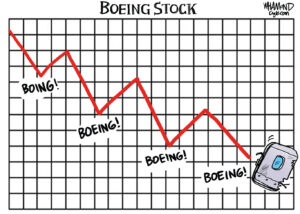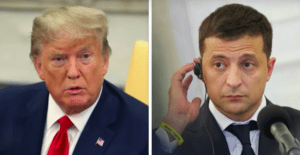The Magnetar Fallout
The hedge fund Magnetar helped create billions of dollars' worth of collateralized debt obligations that super-charged the financial meltdown, profited the company enormously and for which it's seen no punishment. Here's a roundup of the known charges, settlements, and investigations that stem from those deals.
By Cora Currier, ProPublicaThis article originally appeared at ProPublica.
The hedge fund Magnetar helped create billions of dollars’ worth of risky deals called collateralized debt obligations, many of which failed spectacularly in the financial crisis. Magnetar, meanwhile, had taken positions that allowed the firm to profit when many of those same CDOs collapsed. Since ProPublica reported on Magnetar’s dealings two years ago, there’s been a long line of investigations and settlements related to the hedge fund.
Magnetar itself has never been charged with wrongdoing, and it has always maintained that it did not have a strategy to bet against CDOs they were involved with. But today’s Wall Street Journal reported that Magnetar is indeed under investigation by the SEC.
What might come of the investigation is unclear. Unlike the banks that have been charged with misleading investors, Magnetar never sold or marketed CDOs, and never made representations about them to customers.
But the Journal reports that the SEC’s investigation is looking into whether Magnetar took such a prominent role in structuring some of the CDOs in which it invested that it became a de facto collateral manager, responsible for selecting the assets in a CDO. If that were the case, Magnetar might have some responsibility to all the investors in the deal.
The SEC has been circling around the Magnetar deals for some time, hitting some of the investment banks and managers involved. Here’s a roundup of all the charges, settlements, and investigations that we know of stemming from Magnetar deals:
Settled:
June 2011: JPMorgan agrees to pay $153.6 million to the SEC to settle allegations that it misled investors by not telling them that Magnetar was involved in the creation of a CDO called Squared CDO 2007-1. In reaching the settlement, JP Morgan did not admit or deny the SEC’s allegations.
February 2012: State Street Global Advisors pays the state of Massachusetts $5 million to settle allegations that it did not disclose to investors that Magnetar was involved in constructing the CDO Carina CDO Ltd. State Street did not admit or deny Massachusetts’ allegations.
Charged:
June 2011: The SEC files a complaint against manager Edward Steffelin for his involvement in structuring JPMorgan’s Squared CDO 2007. In October 2011, a judge threw out part of the SEC’s case, ruling that Steffelin had not engaged in “fraud or deceit.” Other charges are still pending. A lawyer for Steffelin declined to comment on an ongoing case.
Under investigation:
June 2011: The SEC is reportedly investigating Merrill Lynch and the firm NIR Capital Management over the Magnetar CDO called Norma.
September 2011: The SEC is reportedly investigating the Japanese Bank Mizuho and an executive there, Alexander Rekeda, over the making and marketing of the CDO Tigris, another Magnetar deal. Mizuho did not immediately respond to our requests for comment on the current status of the investigation.
September 2011: The SEC warns it may bring charges against the Ratings Agency Standard & Poor’s, which abruptly downgraded a Magnetar CDO called Delphinus CDO 2007-1. (In an SEC filing in February, S&P’s parent company, McGraw Hill, said that the SEC’s warnings “have no basis and they will be vigorously defended.”)
February 2012: The SEC warns Alexander Rekeda that it may bring charges against him for misleading investors about Magnetar’s role in creating Delphinus. Rekeda, who is now at the investment firm Guggenheim Capital, could not be reached today for comment.
May 2012: According to the Wall Street Journal, Magnetar itself is under investigation by the SEC. Magnetar told ProPublica in our original story that the SEC was “looking broadly” at CDOs and had requested information from Magnetar, but said that they were unaware of a particular target of the investigation.
The Journal also reports that the SEC continues to investigate NIR and its founder, Corey Ribotsky, for its role in creating Norma with Merrill Lynch. NIR did not respond to our requests for comment, but a lawyer for NIR and Ribotsky told the Journal that the firm had not acted improperly in selecting Norma’s assets. A spokesman for Bank of America, which now owns Merrill Lynch, declined to comment.
Your support matters…Independent journalism is under threat and overshadowed by heavily funded mainstream media.
You can help level the playing field. Become a member.
Your tax-deductible contribution keeps us digging beneath the headlines to give you thought-provoking, investigative reporting and analysis that unearths what's really happening- without compromise.
Give today to support our courageous, independent journalists.






You need to be a supporter to comment.
There are currently no responses to this article.
Be the first to respond.